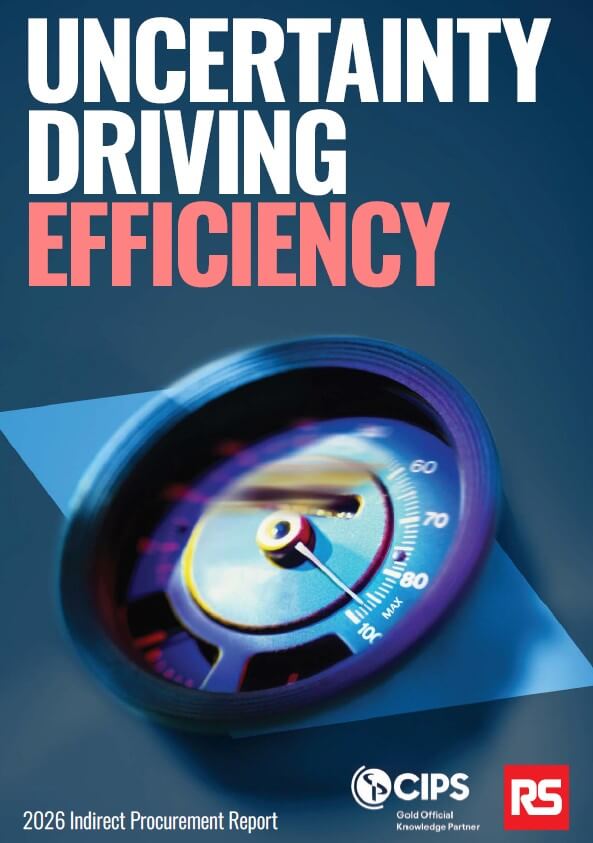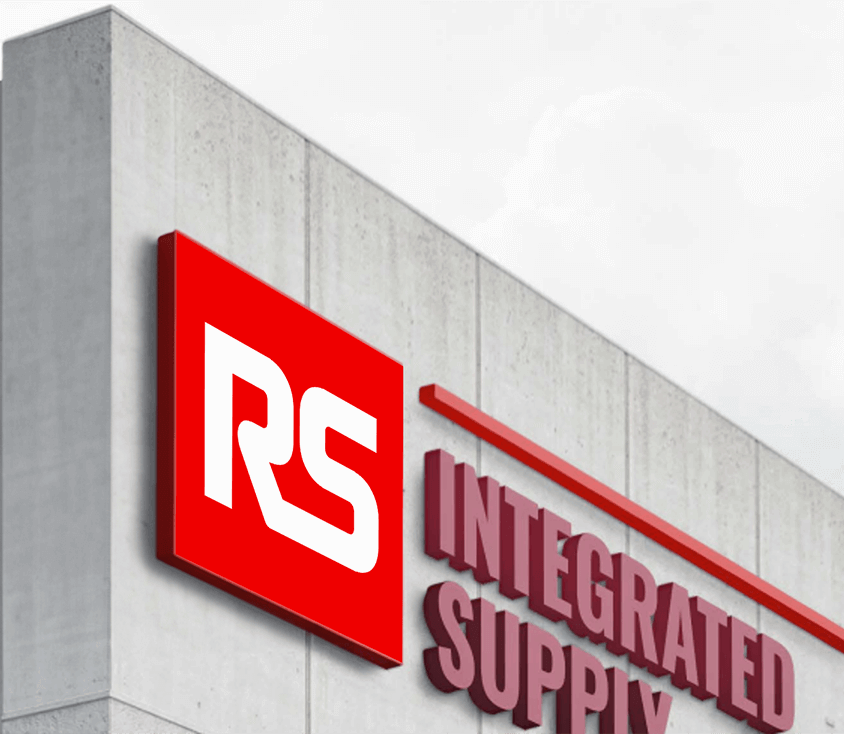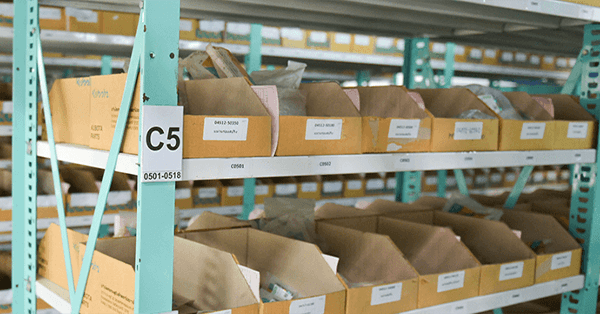Published on
Read time: 6 minutes

How integrated supply chain management services play a crucial role in life sciences manufacturing.
While the items procured for maintenance, repair, and operations (MRO) are common to many manufacturing sectors, every industry has specific requirements that need to be met. “The MRO products are the same in pharmaceuticals and life sciences as in other businesses,” says Barbara Fremont, Head of European Strategic Partnerships at global MRO supply chain solutions provider RS Integrated Supply. “Just the level of expectations and rules we need to follow is much higher.”
Such expectations and rules shape how Pharmaceutical/Life Sciences manufacturers manage the MRO supply chain. Integrated supply, the management of MRO materials from a single, central perspective, can help address the challenges that arise in working to meet those expectations.
The impact of regulation
The Pharmaceutical/Life Sciences industry is highly regulated, with compliance often extending to the MRO supply chain. “There’s a lot of sign off on how they’re going to manufacture a product if there is any potential for contamination,” explains Mike Dyson, General Manager for RS Integrated Supply in North America. “Clients scrutinize our supplies, where they come from, and how they are stored.”
“There is a special set of GxP or good practice rules that we have to follow for parts that touch the final consumer product,” continues Fremont. “We have to comply with US Food and Drug Administration regulation and sign a quality agreement with our suppliers – and although the FDA is leading this trend, European organizations are going in the same direction, too.”
The level of regulation within the industry affects all aspects of the MRO supply chain including digital software. “Their technology systems are very protected. You’re often not allowed to use them as you might in a less controlled industry, so you have to develop your ability to interface and extract data from them,” says Simon Hilton, Senior Vice President for Business Development at RS Integrated Supply. “You have to be nimble in terms of system integration so you keep the processes as efficient as possible without creating any risks in their systems that could lead to some form of breach.”
The role of ESG
Another defining feature of pharmaceuticals and life sciences is a strong concern for environmental, social, and corporate governance (ESG). Piece price isn’t irrelevant, says Joakim Krumlinde, Client Services Manager for RS Integrated Supply, “but it is not as crucial as sustainability, which is now higher up on the agenda.”
“You need good corporate citizenship,” observes Hilton. “For our clients, we work at sourcing appropriately so there are no issues around poor quality, modern-day slavery, or child labor in the supply chain. The same goes for environmental measures such as reducing carbon footprints.
“People are far more critical of pharmaceutical firms than other businesses, so they have to manage their public profiles carefully,” he continues. “They are also more attentive than other sectors to supply chain issues, so with a new area of concern such as ESG, it makes sense that they will pick up on it straightaway.”
Responding to customer needs
How does working with an integrated supply services provider help pharmaceutical and life sciences manufacturers address the needs of their industry? Dyson believes that being present on site is key because it allows for more interaction. “Unlike a traditional distributor that reacts to receiving a purchase order from a customer, we’re involved on a daily basis with the people who are using the parts,” he says. “Being interactive reduces a lot of risks because the client doesn’t have to go looking for these items. We’re a one-stop shop so it’s more efficient.”
An integrated services provider brings sector-specific expertise to the table as well. Fremont gives the example of experience with good practice procedures. “Whereas these checks were previously performed internally by the clients, now that the FDA has started to be much more demanding, we are taking over these responsibilities,” she says. “We have had to develop beyond being procurement-only specialists. We have the skills to be GxP specialists. You have to respond to the changing needs of your customers.”
“You have to create solutions to meet clients’ needs,” concurs Hilton. “For example, many of our pharmaceutical clients are focusing more on ESG. That might mean consolidating deliveries, so you emit less carbon getting the goods to them or finding products with a lower carbon footprint. Can you offer alternative products that lower their energy usage or reduce their waste?”
Addressing industry challenges
Another solution that integrated supply providers can offer to pharmaceuticals and life sciences clients is digital technology. Take SnapPartÔ, an RS Integrated Supply tool that uses mobile technology and Artificial Intelligence to improve inventory and storeroom management. “SnapPartÔ is a game changer because it cleanses the client’s data so that we can understand exactly what parts they use and stock – and if they have multiple sites, we get full visibility,” says Hilton.
“We can then itemize their inventory and reduce their spend because they’ve got the right products in the right place at the right time. SnapPartÔ allows us to do this more quickly and efficiently. The speed of identification and accuracy of identification is hugely enhanced.”
Fast and accurate identification of parts is especially beneficial in this highly regulated environment where product compliance is a top priority. There are wider business benefits too. As Dyson points out, “As far as the clients are concerned, if we are more efficient because of our technology, then they are going to have better uptime and better supply chain management.”
The importance of trust
“Clients understand the value we bring,” adds Krumlinde. “We bring value to the whole company with the solutions we are creating for them.” Hilton echoes this sentiment, commenting that “We offer one place for all your sourcing requirements that you can trust to do it correctly within the boundaries of legislation and industry governance. Without increasing risk, you can outsource supply chain management, vendor consolidation and transaction consolidation.”
This trust is based upon experience and expertise. “It’s the ease of having sourcing activities done on your behalf by a partner who knows your industry and the governance required to operate effectively,” says Hilton – and Fremont agrees. These clients “want to outsource management of MRO and can rely on us to handle this and meet the exacting quality standards demanded by regulations,” she says.
They also trust RS Integrated Supply to support progress towards ESG targets. “More and more, the ESG trend is coming into the picture,” continues Fremont. “They are very sensitive to the sustainability of the product. They rely on us to help our suppliers become more sustainable as we are the link between them.
“Some clients say that although sustainable products may be more expensive, that’s what we want you to source. We are even reviewing the key performance indicators we have in place in one contract because savings are not the most important one. ESG is becoming more and more important.”
All of this depends, however, on getting the basics of MRO supply chain management right. This is the foundation on which value-added activity builds. “Most customers that we go into work with have a mismanaged MRO supply chain and we then put order to the chaos,” says Dyson. “That’s what integrated supply does. That’s what we do. We take all that noise and organize it to allow you to keep doing what you do best.” This is as true for pharmaceuticals and life sciences as any other industry.





